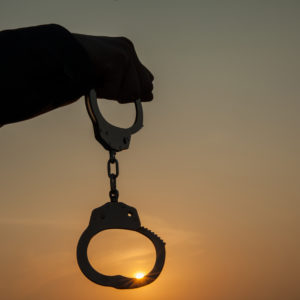Melissa Brown hit bottom in her youth. Desperate for drug money, she shoplifted in 1998 and stole a pocketbook from a grocery cart in 2001. Then, she got sober, served her time in prison, and turned her life around.
She earned a psychology degree at the University of Mary Washington in Fredericksburg, Virginia, completed 200 additional hours of specialized training, and became certified as a substance abuse counselor. For seven years, she helped people struggling with addiction.
Then, she found out her career was illegal.
Virginia permanently bans people with any of 176 convictions from working as substance abuse counselors. The state does not care that Melissa paid her full debt to society, answered all questions truthfully when applying for certification, and received approval to work from the Virginia Board of Counseling.
People can change, but Virginia and many other states still hold them back. No mercy. No fresh start. No expiration.
It does not matter that Brown has lived clean for more than 20 years. Or that no one complained about her work. Or that her journey to sobriety makes her more relatable to patients and more valuable to her industry — not less.
“People with substance use disorder are the very people that have the experience that know what other people have been going through,” Brown said.
Stopping people like her from sharing their expertise does not protect the public. It makes the public less safe by putting qualified counselors on the sidelines and reducing access to potentially life-saving services. Even the Virginia agency that enforces the ban admits it blocks people with “invaluable” experience.
“We’re essentially telling people that they can’t rehabilitate,” Brown said. “We send you to prison, you do your time, you get out of prison, and then you have to start a new life, right? You have to become a productive member of society.”
Many states set a trap. They demand employment as a condition of probation or parole but use blunt laws to stop people from earning an honest living in the field for which they’re most qualified. People with criminal records can wash dishes or write code, but they cannot interact directly with clients in dozens of service-oriented occupations — even when convictions are unrelated to the job.
“It does not allow people the ability to change,” Brown said.
Still dedicated to helping people recover, she found a management position as vice president of marketing and operations at a treatment facility. She also fought back with a constitutional lawsuit against the state, filed on March 27. Our public interest law firm, the Institute for Justice, represents her.
The case is not the first of its kind in Virginia. In 2021, Rudy Carey, a substance abuse counselor from Fredericksburg, sued the state for similar reasons. His case ended with a pardon from the governor, which freed Rudy to work but did not resolve the broader issues.
Problems persist in all states and the District of Columbia. Nurses, cosmetologists, drivers and other professionals can face restrictions. Colorado will not let people with criminal histories mop floors or serve cafeteria food at behavioral health facilities.
Some restrictions apply without a conviction. An arrest can be enough to put someone on the do-not-hire list in 30 states. Officers briefly detained single mom Ifrah Yassin on suspicion of robbery in Minnesota, but prosecutors declined to file charges after realizing she was innocent. Despite the vindication, regulators tried to stop her from working in a group home for adults with intellectual disabilities.
Abuses like these must end.
People who hurt others should face consequences. However, after people like Brown have served their time, out-of-court “permanent punishments” should not apply unless necessary to protect the public. Even then, states should make the rules as fair as possible.
Redemption is a fundamental value worth celebrating. People who hit bottom and stand back up provide inspiration — not just for recovering addicts but for everyone.


